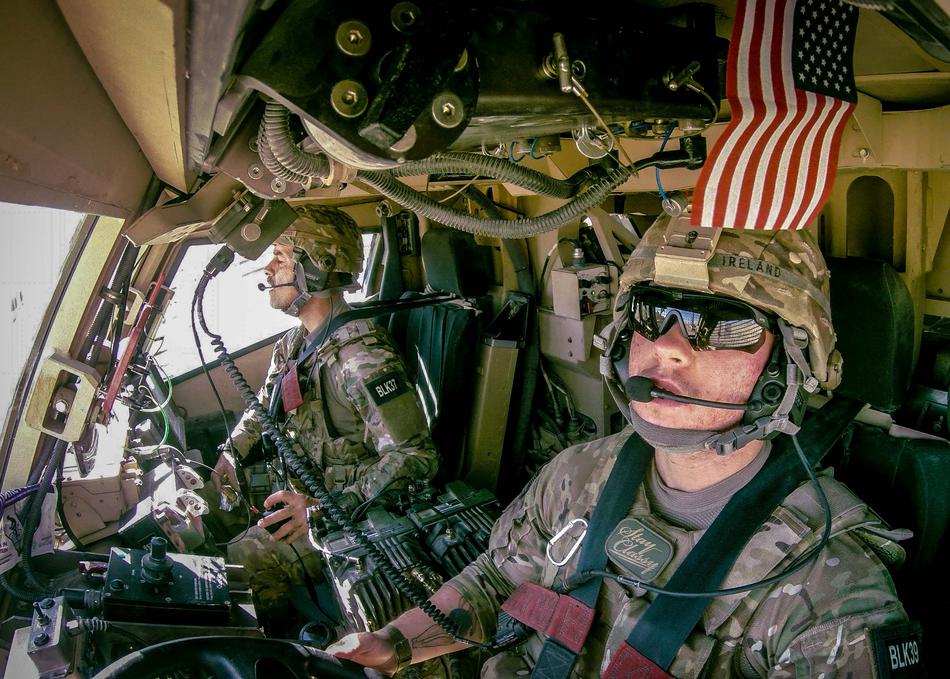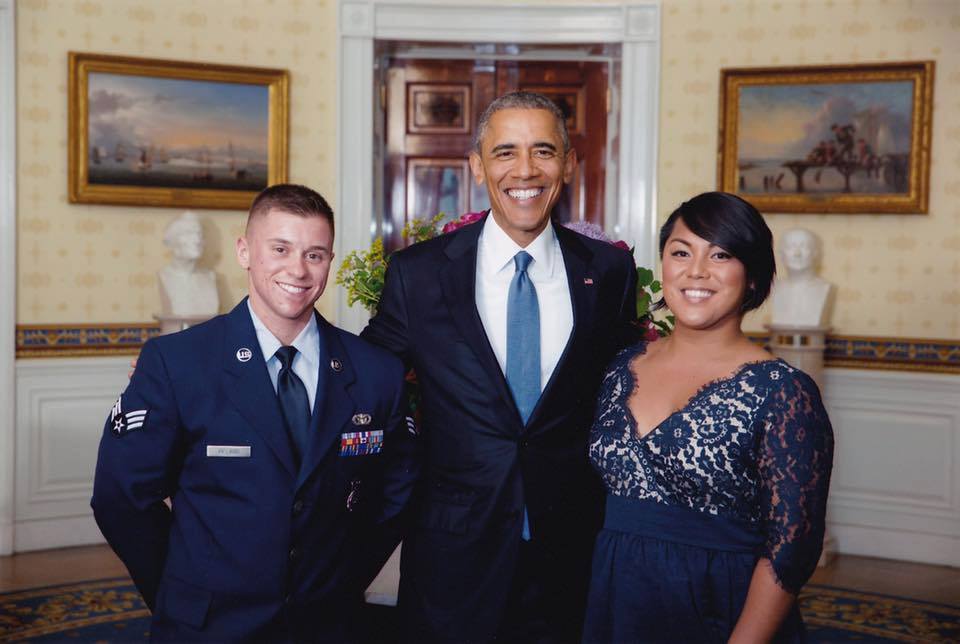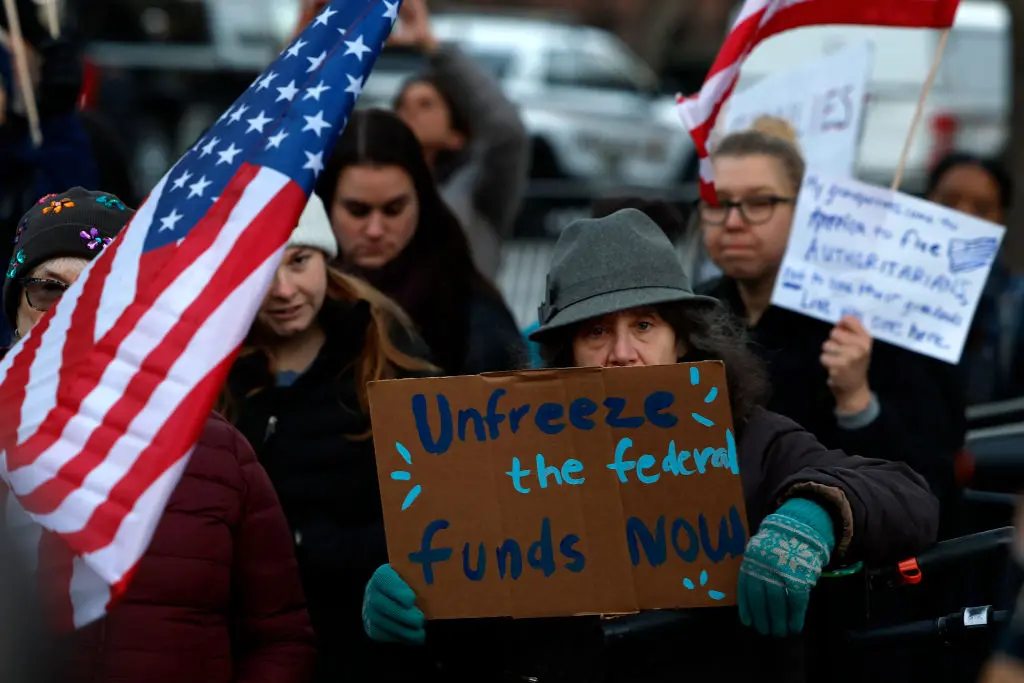
‘TransMilitary’ Is the LGBT Advocacy Film Middle America Needs to See
The documentary shines brightest when it shows trans soldiers simply going about their lives.

It’s April 27, 2016, and we’re in the living room of a modest home in Clarksville, Tennessee. Family photos hang on the wall, and there’s a framed painting of Jesus on a side table. Army Captain El Cook sprawls on the couch, worn out from a long day of packing. He’s flying out in a few hours for his third deployment, this time to Iraq. His mom, Reverend Jean Cook, snuggles close to him, wearing hoop earrings and a gray sweatshirt that says ARMY. “Let me ask you this,” she says. “Will you please stay in touch? Keep your phone charged up.” Then she and her husband encircle their son, laying their hands on his shoulders and praying: “Lord, protect him every step of the way.” Addressing the camera with teary eyes, Jean admits she’s scared.
Any parent would struggle to send their child off to war, of course. But there’s another layer to the Cooks’ fear. As one of about 15,500 transgender troops in the U.S. military, El faces extra dangers. He’s afraid to tell his new roommates that he’s trans, knowing they could harass him or even report him up the chain of command. His biggest fear is that he could be kicked out of the Army, but the smaller, daily grind gets to him, too, as he explains to a friend in another scene: “If you park and your tires are over the line, they’re gonna counsel you. If you show up any less than 15 minutes early, if you score any less than a 300 on a test — they can still find ways.” It’s exhausting, he says.
Cook is one of four trans soldiers featured in TransMilitary, a new documentary directed by Gabe Silverman and Fiona Dawson that made its debut at SXSW this week. The 1.5-hour film spans four years and tracks the troops’ efforts to convince the military to finally allow transgender soldiers to serve openly. Contrary to popular belief, the 2011 repeal of “don’t ask, don’t tell” did not include, as one soldier puts it, “the T in LGBT.”
In addition to Cook, there’s Army Company Commander Jenn Peace, who enlisted to escape homelessness and an abusive stepfather; Air Force Staff Sergeant Logan Ireland, who feels more at ease driving a tank in Kandahar with his tight-knit brothers than he does back home; and Army Corporal Laila Villanueva, whose mother briefly disowned her when she came out. They’re all members of SPARTA, a group that advocates for trans equality in the military, and throughout the film we see them gather in Washington, D.C., for meetings with high-ranking officials. Again and again, they polish their shoes, apply lint rollers to their dress blues and rehearse their talking points en route to the Pentagon. The filmmakers weren’t allowed into the closed-door meetings, but we get debriefed on how they went — mostly, lots of patience and careful explanations on the soldiers’ part, met with clueless platitudes from the top brass. General Mark A. Milley, the Army’s chief of staff, tells Peace that she’s the first transgender person he’s ever knowingly met. Then he goes straight to asking if she’s had surgery. Peace gamely says she’s had three surgeries before trying to change the subject. Everybody leaves with commemorative coins when they would prefer promises of a policy change. Still, the group chalks the meeting up as a success — at least Milley showed a willingness to listen.
This is one to watch with your anti-LGBT uncle at Thanksgiving, if you dare.
There’s a love story here, too. Without ever being maudlin, the filmmakers weave a storyline around Ireland and Villanueva’s romance. We see them falling for each other over long-distance Skype calls, as well as comparing their wildly variant experiences being trans in the military. Villanueva’s commanders harass her, forcing her to wear a man’s uniform and cut her hair short; Ireland’s couldn’t be more supportive. In a scene that would stir something even in Texas Lieutenant Governor Dan Patrick’s dessicated heart, the two share a joyful reunion, hugging and crying, when Ireland returns from deployment. They weep with happiness again on June 30, 2016, when the military officially lifts its ban on transgender service members. (In its one significant flaw, the film shoehorns the entire Trump administration, the resurgence of hate and the ongoing attempts to reinstate the ban into the final 10 minutes.)

Yet these emotional highlights aren’t the most powerful moments in TransMilitary. Those with the most punch are far more ordinary: Peace goofing off with her kids and her wife in their suburban cul de sac, spraying Silly String; Cook going clubbing in Houston with his buddies. In these scenes, the subjects aren’t monolithic advocates, heroes or inspirational figures. They’re just people. That may sound cliché, but it’s the fundamental truth that transphobic haters refuse to see. Surely at least a few of them — especially those who glorify the military, the power of prayer and “American values” — could be swayed by this deeply empathetic movie. This is one to watch with your anti-LGBT uncle at Thanksgiving, if you dare.
Finally, while watching each soldier recount their story in eloquent, lengthy sit-down interviews, I realized that this beautifully made film was yet another time trans people were asked to do the emotional labor of explaining their very existence to the world. As Cook says, it must be exhausting. Here’s hoping that someday soon, they won’t have to do it at all.



